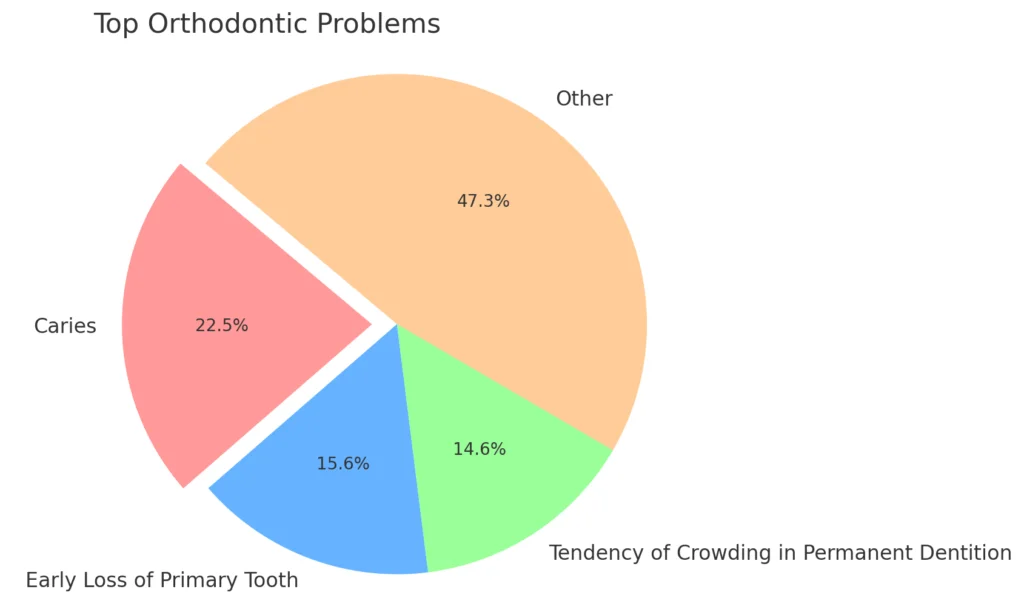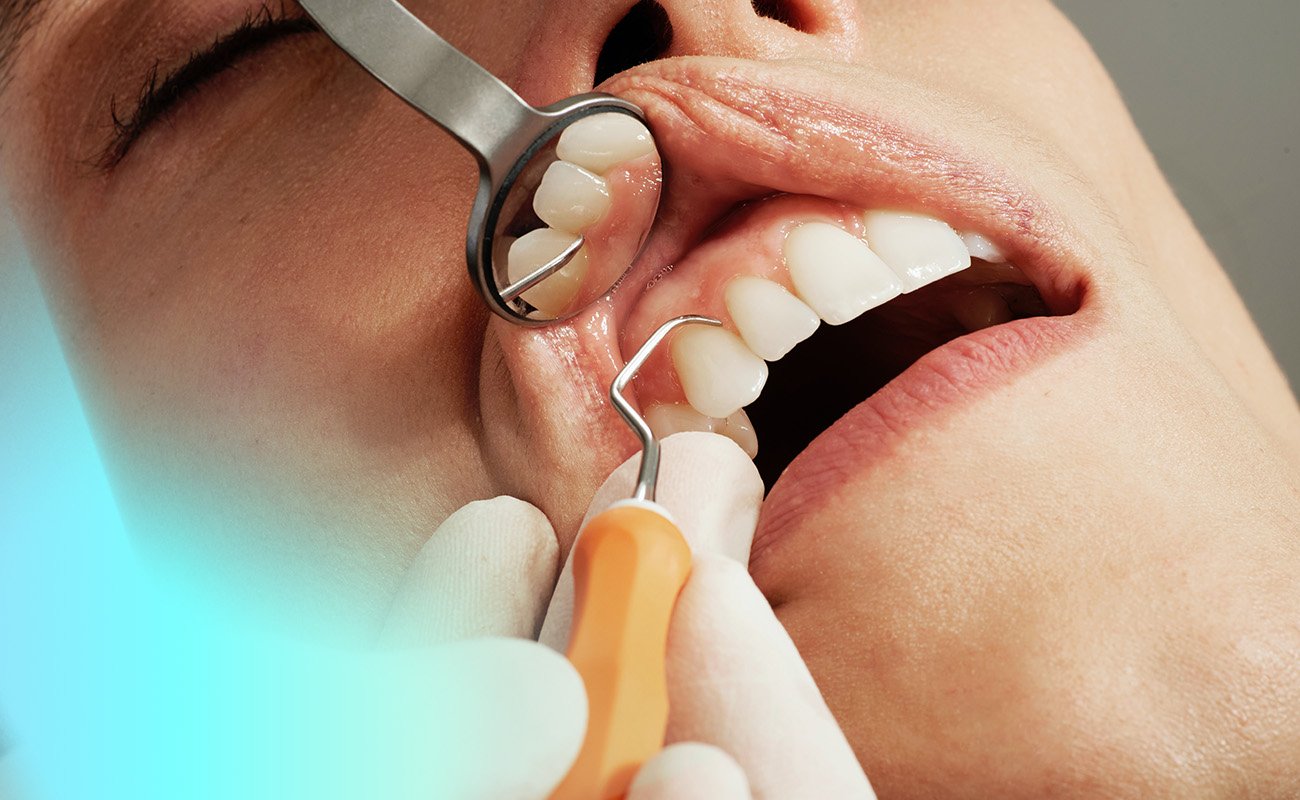Are you concerned about a snaggletooth affecting your smile? Wondering what options are available to correct it? Snaggletooth, or an irregularly positioned tooth that stands out from the rest, is a common dental issue many face. In this article, we’ll explore the various methods to fix a snaggletooth, from simple cosmetic procedures to more comprehensive orthodontic treatments. Our goal is to provide you with the information you need to make an informed decision about improving your dental health and achieving the smile you desire.
What Causes Snaggletooth?
Overcrowding
Overcrowding is a primary cause of a snaggletooth, occurring when there’s not enough space in the mouth for all the teeth to fit properly. This lack of space can cause teeth to push against each other, leading one or more teeth to protrude or twist out of alignment, creating a noticeable snaggletooth.
Overly Large Teeth for the Jawbone
Having teeth that are too large for the jawbone can also lead to a snaggletooth. When teeth are disproportionately large compared to the size of the jaw, they may struggle to fit comfortably within the mouth. This mismatch can force one or more teeth to jut out or shift position, resulting in a snaggletooth.
Research featured in the Journal of the International Society of Preventive & Community Dentistry identifies the three most prevalent orthodontic issues as dental caries at 22.5%, early loss of primary teeth at 15.6%, and crowding in permanent teeth at 14.6%.

Primary Teeth are Lost too Early
Losing baby teeth too early is another factor that can contribute to a snaggletooth. When primary teeth fall out sooner than they should, the surrounding teeth may shift into the empty space, disrupting the alignment of the emerging permanent teeth. This shift can cause a permanent tooth to come in incorrectly, leading to a snaggletooth.
Teeth Grinding
Teeth grinding, also known as bruxism, can be a contributing factor to developing a snaggletooth. Habitual grinding can wear down and weaken the teeth, potentially causing one to shift out of place or protrude, resulting in a snaggletooth appearance.
Thumb Sucking
Thumb sucking is a common habit for many children, but it can cause a lifetime of dental consequences. Long-term thumb sucking can cause changes to both the shape and growth rate of baby teeth and adult teeth coming in which can lead to overcrowding and eventually misalignment.
Can Snaggletooth Cause Oral Health Issues?
A snaggletooth, while often viewed primarily as a cosmetic issue, can indeed contribute to a range of oral health concerns if not properly managed. The misalignment associated with a snaggletooth can create hard-to-reach areas, making effective brushing and flossing more challenging. This difficulty in maintaining oral hygiene can lead to an increased risk of plaque accumulation, tooth decay, and gum disease, as these areas become breeding grounds for bacteria.
Furthermore, a snaggletooth can disrupt the natural alignment of your bite, leading to uneven pressure distribution when chewing. Over time, this can cause excessive wear on certain teeth, discomfort, and even chronic jaw pain or temporomandibular joint (TMJ) disorders.
Therefore, addressing a snaggletooth is not just about enhancing the aesthetics of your smile but also about preventing potential oral health issues that could arise from neglecting the condition.
See our article: Snaggle Tooth Before and After.
How to Fix a Snaggletooth?
There are several ways that snaggletooth can be treated and with a proper care plan from your dentist, the issue can be fully resolved.
Braces
Braces are a common and effective way to treat a snaggletooth, helping to bring the misaligned tooth into proper position alongside the others. This orthodontic treatment involves attaching brackets to the teeth, connected by wires that gently apply pressure over time, gradually moving the teeth into the desired alignment.
Braces can be used to address a wide range of alignment issues, including a snaggletooth, making them a versatile solution. The treatment duration varies depending on the individual case but can significantly improve both the function and appearance of your teeth, leading to a healthier and more confident smile.
Aligners
Aligners offer a practical solution for addressing a snaggletooth, providing a balance between effectiveness and user comfort. These transparent, tailor-made devices gradually realign the teeth, making significant improvements possible within a few months, particularly for less complex issues. Their appeal lies in the simplicity of use and the minimal discomfort experienced during treatment, positioning them as a favorable alternative to more invasive dental procedures.
See our reviews of the best invisible aligners
Byte Review – The top pick. This aligner is the most affordable and comes with a lifetime guarantee. Included in each purchase is a free HyperBite and retainer.

Byte
An affordable option with refundable impression kits, free HyperByte, and a Byte for Life guarantee.
Check out Byte AlignersCandid Review – Very similar to Invisalign aligners and offering a hybrid in-office care procedure this product has received a lot of positive reviews.

Candid
A hybrid of in-office and at-home treatment that provides 1-on-1 orthodontist support.
Check out Candid AlignersALIGNERCO – Lowest in price and a zero deposit monthly payment plan. A seasonal discount package is available for only $945.

AlignerCo
The cheapest at-home aligners, with monthly plans, no down payment, and considerable discounts.
Check out AlignerCo AlignersLingual Braces
Lingual braces use titanium brackets bonded directly to the back of each tooth and are used to move them into their correct position. While it can take longer than traditional braces since they are harder to adjust, in most cases, lingual braces perform just as effectively as traditional options. Also, because of their positioning, lingual braces limit food traps that can result from conventional treatments with wires and brackets on the front of your teeth.
Tooth Contouring
Tooth contouring is a minimally invasive, cost-effective, and safe way to correct minor aesthetic issues with the teeth including snaggletooth.
This procedure involves using a fine drill and laser to gently remove small amounts of enamel from the tooth surface. Trained cosmetic dentists carefully remove tiny portions of the affected tooth or teeth until they come in line with the desired shape and look of your smile line.
Related post: Quickest Way to Straighten Teeth.
Implants
Dental implants can be a solution for a snaggletooth, particularly when the tooth needs to be replaced. An implant involves placing a small, sturdy post into the jawbone, which acts like the root of a tooth. Once it’s securely in place, a false tooth is attached to the post, filling in the gap and looking just like a natural tooth.
Dental Arch Adjustment
Dental arch adjustment is a method used to treat a snaggletooth by reshaping the arch of the teeth, creating more space and better alignment. This treatment involves using orthodontic appliances to gently expand the dental arch, allowing teeth to move into their proper positions. It’s a gradual process that focuses on the structure of the jaw and teeth.
Dental arch adjustment can be an effective solution for those with a snaggletooth caused by overcrowding or a narrow jaw.
How to Fix a Snaggletooth?
In conclusion, fixing a snaggletooth is achievable through various dental treatments, each tailored to meet different needs and preferences. From the discreet and innovative use of aligners and lingual braces to the permanence of dental implants, there’s a solution for everyone. For structural adjustments, dental arch adjustment offers a more comprehensive approach, addressing underlying issues of space and alignment.
Each method provides its own set of benefits, focusing on not just improving the aesthetic appearance of the snaggletooth but also enhancing oral health and functionality.
Frequently Asked Questions
How can you Fix Snaggletooth at home?
An article on Byte.com explains that the best way to fix snaggletooth at home is to use doctor-monitored at-home aligners which is the most affordable option to correct minor to moderate snaggletooth.
How can you Fix Snaggletooth Without Braces?
Alternative treatments for wearing braces to resolve snaggletooth issues include invisible aligners, enamel reshaping, bonding, veneers, or bridges.
All of these can help to restructure the tooth architecture and improve its aesthetic look.
How Long Does it Take to Fix Snaggletooth?
It all depends on the severity of the snaggletooth. Generally speaking, if the issue is minor and only affects one tooth a simple procedure such as bonding or veneers can be done in one office visit.
If the snaggletooth is more severe or affects multiple teeth, additional treatments may need to be completed over multiple appointments, such as braces, aligners or other orthodontic treatments such as crowns or bridges.
Sources:
Rapeepattana, S., Thearmontree, A., Suntornlohanakul, S., Etiology of Malocclusion and Dominant Orthodontic Problems in Mixed Dentition: A Cross-sectional Study in a Group of Thai Children Aged 8–9 Years, J Int Soc Prev Community Dent, 2019, DOI: 10.4103/jispcd.JISPCD_120_19. Available online at: https://www.ncbi.nlm.nih.gov/pmc/articles/PMC6714419/
Saliba Moimaz, S. A., Ísper Garbin, A. J., Chaves Lima, A. M., Lolli, L. F., Saliba, O., Adas, C., A longitudinal study of habits leading to malocclusion development in childhood, BMC Oral Health 2014. Available online at: https://bmcoralhealth.biomedcentral.com/articles/10.1186/1472-6831-14-96
Mortazavi,M., et al. An updated systematic review on the effectivity of clear aligner therapy: A review. Journal of Craniomaxillofacial Research. (2020). Available online at: https://www.researchgate.net/publication/349579223_An_updated_systematic_review_on_the_effectivity_of_clear_aligner_therapy
Ke, Y. et al. A comparison of treatment effectiveness between clear aligner and fixed appliance therapies. BMC Oral Health. 2019. doi: 10.1186/s12903-018-0695-z Available online at: https://www.ncbi.nlm.nih.gov/pmc/articles/PMC6343314/

